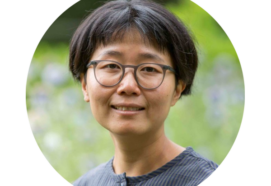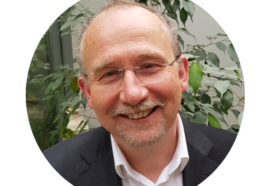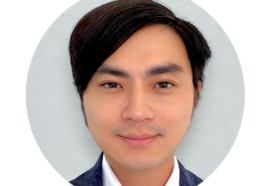Dr Mark Lovell is a Consultant Child and Adolescent Learning Disability Psychiatrist working Tees, Esk and Wear Valleys NHS Foundation Trust and works in autism assessment and teaching. As well as working part-time as Chief Clinical Information Officer for his NHS Trust, he is also ACAMH Lead for Continuing Professional Development and training.
After spending his childhood and adolescence working extensively with children with learning and physical disabilities Mark said he knew he wanted to work young people while he was a young person himself.
Mark’s father was a youth leader and ran an outdoor pursuits centre working with children and adults with disabilities and additional needs. His mother was a part-time French teacher often working in day centres teaching adults with learning disabilities.

As a teenager Mark volunteered on ski trips with the charity Phab (Physically Handicapped Able-Bodied) teaching people with a variety of disabilities how to ski.
“I would be literally strapped onto the back of a big toboggan hurtling down hills acting as a human anchor and once taught someone with brittle bone disease how to ski. She wanted to ski and took all the risk despite having a high likelihood of getting a broken bone by the end of it, luckily she didn’t.”
After a degree in Psychology in Relation to Medicine Mark trained as a Psychiatrist later taking a special interest in child psychiatry and learning disabilities.
Mark said the myriad demands of the cyber world posed a particular challenge for child psychiatrists: “At a time when electronic connectivity and connectedness is vastly increasing personal connectedness and support systems are probably reducing.”
“While in the past bullying would often just occur in one setting at predictable hours of the day you can be cyberbullied by strangers who can be children or adults anywhere in the world any time of day any day of the week.”
He said some children were particularly vulnerable to the more malign influences online: “Children with learning difficulties and any number of neuro-developmental needs like ADHD or autism spectrum disorders have somehow got to keep up in a world that’s becoming ever more complex where you’re having to learn new skills constantly, I feel the gap between the can-dos and can’t-dos will widen.”
The field also faces obvious pressures on a societal level, Mark added, and could benefit from thinking about mental health from a public health perspective: “There are social determinants of mental illness, poverty, deprivation and the social circumstances of children. The most damage we can do to our society is not protecting and nurturing our children because they are our society’s future.”
Mark’s current role on ACAMH’s board is as lead for CPD and training, prior to that he oversaw its branch networks in the UK and Ireland and later set up a branch in Malta.
Despite his many years of service and dedication to the cause, Mark’s involvement with ACAMH was a complete accident.
After arriving early for a conference of the Yorkshire ACAMH branch as a trainee Mark stumbled into its committee meeting. He was invited to sit down and was quickly asked if he’d be the new branch Chair.
After accepting Mark set about bringing new faces into the committee and absorbed the South Yorkshire branch and later went on to become Editor of ACAMH’s membership magazine The Bridge.
He said a particular highlight of his time with ACAMH had been the progression of the branch he set up in Malta after teaching some of the country’s Child and Adolescent Mental Health specialists.
“The impact ACAMH has had on Malta has been phenomenal because they had nothing there before. Now they have created this really vibrant community in a country that has almost no child mental health education within it.
“They have been really committed to putting on events and not just with health professionals they’ve been drawing in teachers, educational psychologists and parents and have really taken ACAMH in their own country to quite new levels which we will probably be following suit within the rest of ACAMH, we want to expand into events relating to education and social care and potentially events for parents.”
Mark said ACAMH events were one of the organisation’s proudest achievements but as a charity in times of austerity keeping events relevant and well-attended was a priority.
“A big challenge is austerity and the availability of staff to be released to learning about their trade for the betterment of the care they offer patients I think that’s really tricky. I think our biggest challenges are trying to get our message out to as broad a community as possible whilst maintaining financial stability in a challenging financial climate.”


